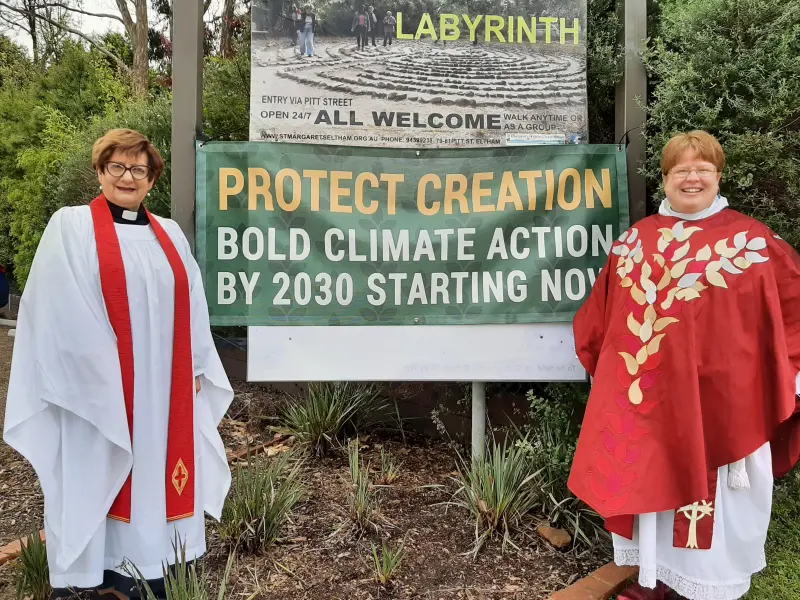COP26 resulted in modest progress towards reducing climate pollution this decade and, to a lesser extent, to increase support vulnerable communities. Alongside the international negotiations themselves, COP26 was the chosen forum for a number of very positive announcements by groups of countries, or by countries and non-State actors together.
However, the world has a great deal further to go and there’s not much time. Many activists, especially those from Indigenous communities and low-income, climate-impacted countries are left deeply disappointed. Even if all pledges are implemented, we remain on track for 1.8–2.6˚C, and keeping warming to 1.5˚C hangs by a fine thread.
Wealthy countries have yet to reach a total of US$100 billion dollars for the Green Climate Fund, much less offer this amount annually, as promised in the Paris Accord. Clearly, action needs to accelerate in line with the urgency and scale of the climate crisis.
The final decision text is binding on all Parties to the Paris Accord, which is why some countries worked to dilute it in key areas. Here are some of the key breakthroughs in the text, and some of the developments that were announced during the summit but were not part of the agreement itself.
Coal and fossil fuel subsidies made it into decision text
Although the final wording had been weakened (by India and others, not Australia), the phasing out of coal and fossil fuel subsidies was included for the first time. Parties want to see ‘accelerating efforts towards the phase-down of unabated coal power and inefficient fossil fuel subsidies, recognizing the need for support towards a just transition.’ The word ‘unabated’ leaves room for countries to pursue carbon capture and storage as a solution; and the word ‘inefficient’ has long been used by governments as a way evading censure for their continued subsidies.
There were parallel developments at COP26 not in the final communique. Firstly, there was the earlier agreement among 190 State and non-State actors, including 40 countries, to phase out coal. Richer countries aim to do this by 2040 and in low-income countries by 2050. Secondly, the largest public funders of overseas coal plants – China, Korea and Japan – agreed to end public funding next year. A growing number of the world’s banks agreed to stop funding new coal plants. A new Beyond Coal and Gas Alliance of ten States and subnational jurisdictions, including Sweden, Denmark and France, have committed to ending new oil and gas exploration.
Call to reduce emissions by 45% this decade
COP26 agreed that limiting ‘global warming to 1.5°C requires rapid, deep and sustained reductions in global greenhouse gas emissions, including reducing global carbon dioxide emissions by 45 per cent by 2030 relative to the 2010 level.’ but the text makes it clear that countries that have not increased their 2030 targets are expected to do so by the end of 2022. Countries like Australia have been requested to return next year with a better target and join a new Ministerial roundtable on 2030 ambition.
140 countries did come to COP26 with enhanced 2030 targets. These have also been called upon to increase their ambition where they are not aligned with 1.5°C.
Key developments during the summit included the Global Methane Pledge involving 104 countries pledging to reduce their methane emissions by 30% by 2030 and, in the latter days of the summit, a joint announcement by China and the US to ramp up cooperation to reduce emissions and protect forests.
Call for doubling climate finance
The Glasgow Climate Pact urges ‘developed country Parties to at least double their collective provision of climate finance for adaptation to developing country Parties from 2019 levels by 2025, in the context of achieving a balance between mitigation and adaptation in the provision of scaled-up financial resources.’ Rich countries were pressed to fully deliver on the US$100 billion promised in the Paris Accord.
Recognition of need to protect forests
Those who care about biodiversity are pleased to see that the protection of forests made it into the decision text. There is recognition of ‘the importance of protecting, conserving and restoring nature and ecosystems to achieve the Paris Agreement temperature goal, including through forests and other terrestrial and marine ecosystems acting as sinks and reservoirs of greenhouse gases and by protecting biodiversity, while ensuring social and environmental safeguards.’
The significant parallel development in this area was the bringing together of an alliance of governments, companies, financial actors, and non-state leaders to raise ambition on forests and land use. Over 130 leaders, representing more than 90% of the world’s forests, have committed to work together to halt and reverse forest loss and land degradation by 2030 in the Glasgow Leaders’ Declaration on Forests and Land Use.
Loss and Damage
People from low-income, climate-impacted countries came to the negotiations strongly demanding that the world do more to help the communities and countries facing climate-fuelled devastating storms, severe droughts and rising sea levels. In the last decade, these demands have gone from being regarded as peripheral to receiving considerable serious attention at COP26. The final decision text resolved to lay the groundwork for the provision of loss and damage financing without setting up a Glasgow Loss and Damage Finance Facility as proposed by a huge alliance of impacted countries, including China – collectively representing 6 billion people.
This outcome led Tasneem Essop, the Executive Director of Climate Action Network International, to declare COP26 a ‘clear betrayal by rich nations … of vulnerable communities in poor countries.’’
Australia part of the problem
Overall, the world is accelerating climate action while Australia is becoming globally isolated and is one of a handful of countries like Brazil, Russia and Saudi Arabia that are seen as part of the problem, not the solution.
In this video, Richie Merzian of The Australia Institute, is speaking from COP26 and authoritatively summarises the ways in which Australia remains a climate laggard.
Australia was among the only developed nations not to bring an increased 2030 target; and refused to support various initiatives such as the Global Methane Pledge and the Fossil Fuel Finance Pledge (to stop funding fossil fuel projects via export credit agencies). Our nation does contribute to adaptation financing via bilateral aid but, since 2018, has not lived up to our pledge to offer funds to the multilateral Green Climate Fund.
Thus climate activists in Glasgow voted Australia as most deserving of this year’s Colossal Fossil Award. The award recognises the countries who do the least to prevent dangerous climate heating and the most to promote fossil fuels.
What are Australians saying in Glasgow?
Uncle Ray Minniecon, a pastor in the Uniting Church and a spokesperson for the Indigenous Peoples Organisation, went to Glasgow. He said ‘For Australia’s Indigenous Peoples, the Australian Government has totally shattered any hopes we had of repairing and healing the deep wounds and scars of our lands and people. We leave COP26 deeply ashamed and embarrassed by the Australian Government’s behaviour and attitudes to the deep concerns we have about the climate crisis. We are angry that their solutions are based on the premise of a ‘business as usual’ mentality which will continue to harm our peoples and all Australians on the lands and waters we all love. Shame! Shame Shame!’
Jo Dodds attended representing Bushfire Survivors for Climate Action and said, ‘Bushfire Survivors are heartened by the efforts made by so many nations in the developed and developing world to negotiate much stronger climate goals. It’s clear that climate damage is devastating communities globally. And many Indigenous and First Nations people are here raising their voices, calling for climate justice. ….. It’s an eye-watering irony that our nation, still reeling from the most catastrophic bushfires we’ve ever faced, warned that we’ll be facing even worse as the climate continues to heat, is still embracing coal, still investing our taxes in new gas projects, still asking communities like mine to be more “resilient” in the face of ever-growing danger.’
The Climate Council’s Dr Simon Bradshaw: ‘The sooner the Australian Government steps up with a plan to drive down emissions this decade, the sooner we can start unlocking Australia’s unrivalled opportunities for new jobs and prosperity through renewable energy and clean industries, start repairing our international reputation, and start protecting Australians and communities everywhere from the ravages of climate change.’
Julie-Anne Richards, Executive Director of Climate Action Network Australia: ‘The rest of the world made it clear they are moving away from coal and gas. If we want to prosper and to protect what we hold dear, we should too, planning for a just transition that supports communities that need it.’
What are our GreenFaith friends saying at COP26?
Rev. Dr Neddy Astidillo, a Venezualan Presbyterian Minister with GreenFaith, wrote in this thoughtful article for the World Council of Churches, ‘I choose hope, in spite of the brutal facts. I choose hope, because faith communities are engaging in increasing numbers among those seeking solutions around the world, including the obvious rise of multi-faith collaborations at this COP. We are united by a sense of the sacred, and all our faith traditions are calling us to seek climate justice. …. The time of the industrial revolution powered by the fossil fuel industry must come to an end, or future generations will have to live under conditions humanity has never faced.’
Source
Image Source
Tags: Australian Religious Response to Climate Change, much to be done, Progress at COP26




